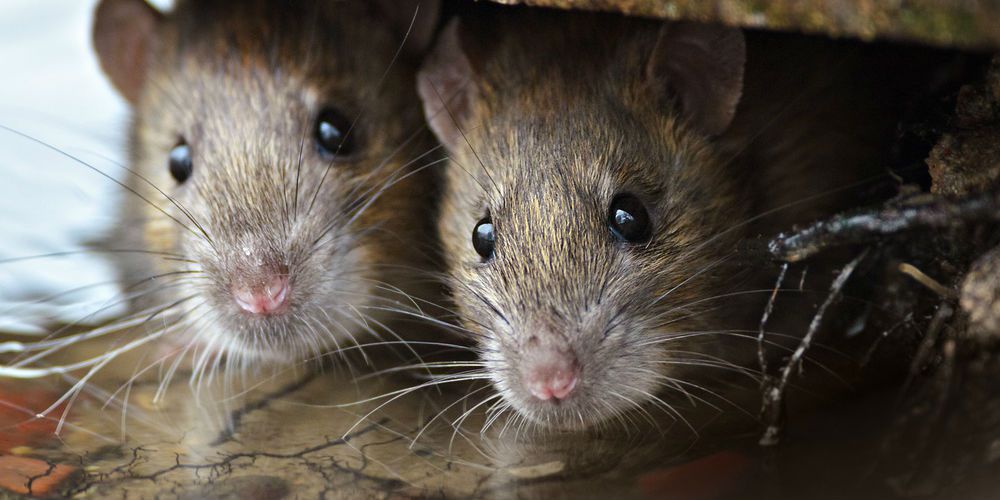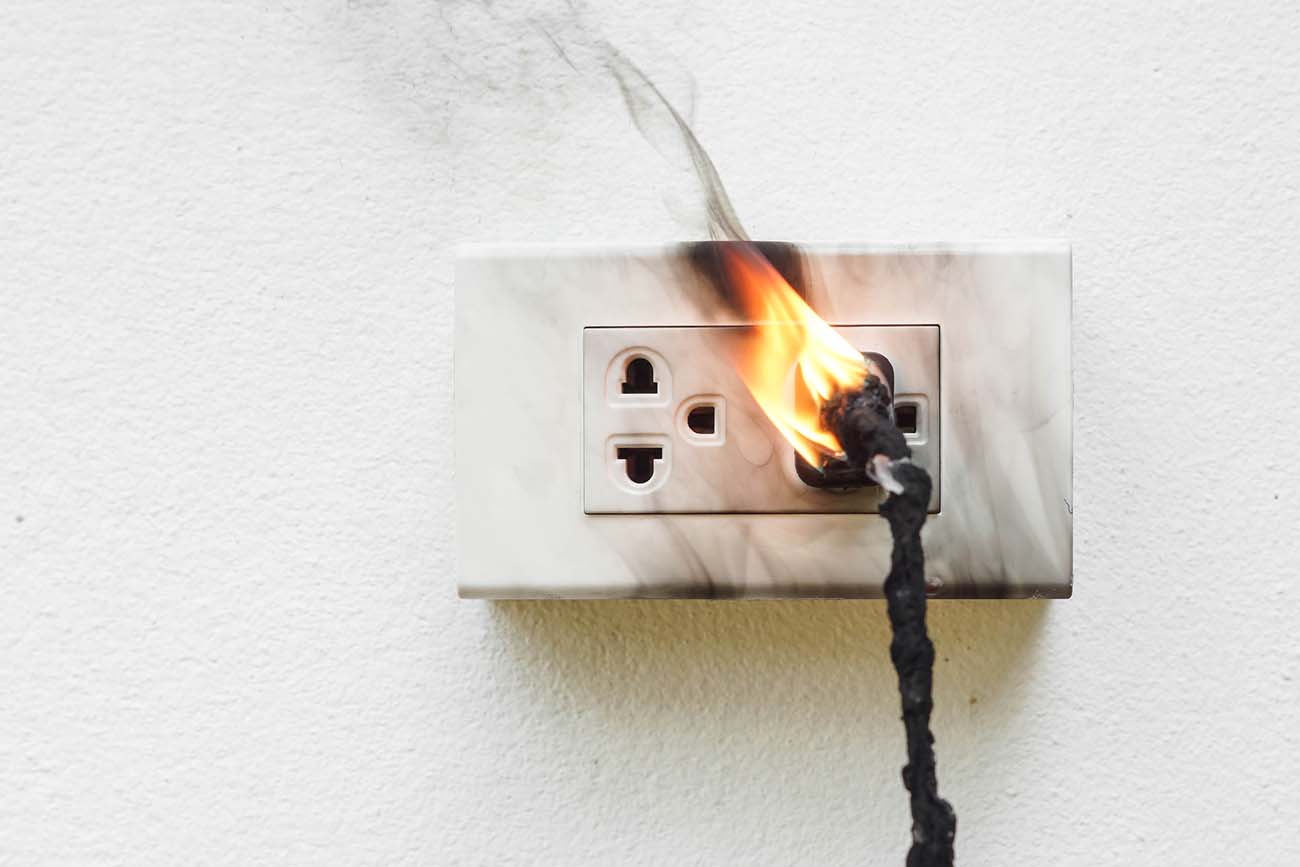Rats and mice are known as spreaders of disease, but there’s another reason you do not want them anywhere near your home. Rodent infestations are also a leading cause of house fires.
Rodents are estimated to cause 20 to 25 percent of house fires of unknown cause in the United States each year, according to a 2012 study by the National Apartments Association.
The National Fire Protection Agency (NFPA) reports that house fires cause an average of 2,620 civilian deaths and $6.9 billion in property damage in the United States each year. A significant percentage of this loss of life and property damage is directly caused by rodents chewing through electrical wiring and gas lines in residential homes.
How Many Fires Do Roof Rats and Other Rodents Cause?
According to the US Fire Administration, a house fire occurs every 79 seconds. There are usually about 50,000 – 60,000 residential fires of “unknown cause” each year in the US. Officials at the Department of Homeland Security estimate that they receive reports from fire departments on only half of the actual number of fires that occur each year. This means that the number of fires of “unknown cause” each year could be double the 50 to 60 thousand average.
That’s possibly up to 120,000 fires of “unknown cause” each year in the US as a result of inadequate rat and rodent control. Remember that 25% of these fires are attributed to squirrels in the attic, roof rats, and mice chewing on attic wiring. Therefore, based on government statistics and statements made by government authorities, the number of residential fires cause by the failure to get rid of attic squirrels, roof rats, Norway rats, and mice are approximately 15,000 fires annually and could be as high as 30,000 fires. If you have rodents, such as rats or mice in your home – you probably have wire damage too.
Rodent Infestations Are Pervasive
Rodents make up more than one-third of the known kinds of mammals – they are the most abundant mammal in many parts of the world. Most rodents are nocturnal or crepuscular; tree squirrels and ground squirrels are strictly diurnal; others may be active either by night or by day.
In the United States it is estimated that there is one rat for every two people. A typical large city in the United States annually receives more than 10,000 complaints about rodent problems. Rodents, in the consumption of food, also contaminate food with their fur, urine and feces. Rats cause an estimated one billion dollars each year in terms of direct economic loss. A rat’s home range is generally within a 50-foot to 150-foot radius of the nest. A mouse usually lives within a 10-foot to 30-foot radius of its nest.
Why Do Rats Love to Chew Electrical Wires?
Rats, mice, and other rodents gnaw on wiring because their teeth do not stop growing. They are compelled to gnaw on wiring, wood, and other objects to grind down their teeth and keep them a reasonable length. There is nothing you can do to curb a rodent’s compulsion to gnaw and chew.
It is theorized that rats and mice are drawn to wiring because it is round, and easier to gnaw. They may also prefer copper wiring as it sharpens their teeth.
Similarly, rats and mice will also chew the wiring in newer automobiles if they have the opportunity. Soy-based bioplastics are used in the insulation of wiring in newer vehicles and rats eat the insulation for nutrition.
Rats Cause Electrical Fires
As roof rats or Norway rats chew the electrical wiring in your home, the exposed wires create heat and become very hot. The uninsulated wires touch flammable material, like the wood in the attic or walls, and fires ignite. It cannot be overstated that rat infestations can be responsible for your home burning down under the right circumstances.
Signs of Rodents Chewing Wires in Your Home
If you see any of these, rats may already be chewing the electrical wiring in your house.
- Hearing scurrying or scratching noises in the attic or walls.
- Lights flickering for no discernible reason.
- Evidence of rat infestation (tracks, feces, urine smell, other gnawing evidence).
How Rodents Enter Your Home
Rats need food and water sources year-round and look for concealed places to start a colony. In the colder autumn and winter months, they may move indoors as food becomes scarce.
Rats can squeeze through hole slightly smaller than a quarter, so patching up any holes in the outside of your home and caulking up any crevices is an imperative job.
Some ways that rats can gain entry to your home include:
- Holes in exterior of the home, including second floor rooms and attics.
- Gaps around utility pipes, dryer vents, or electrical conduits.
- First floor gaps in doors or windows.
- Garbage chutes
- Any crevice or crack in the home exterior that is larger than a quarter-inch in diameter.
Inspecting Your Home for Rats
If you see rodent droppings, smell strange urine scents, see mouse footprints, or notice signs of food or paper being gnawed, these are sure signs you have a rat colony somewhere in your home.
Places to look are along the perimeters of walls, in the attic, in crawlspaces, in rooms not often used, and in cupboards. Rats and mice travel along the perimeter of a building or room, and follow the scent left by other rats.
Preventing Rats From Invading Your Home
We have a complete list of ways to prevent rats from colonizing your property here, but these are some helpful tips for rat prevention.
- Patch all holes and crevices in exterior of home.
- Clean up all vegetation and shrubbery to take away places to hide.
- Eliminate clutter on your property and in your home.
- Keep trash cans and pet food tightly covered.
- No compost piles in the garden, clean up loose vegetation quickly.
- Pick up all fruit off ground if you have fruit trees.
- Trim trees away from house.
- Get rid of woodpiles or other piles of clutter outside.
- Feed pets only what they need, don’t leave extra in food bowls.
- Take away bird baths, shallow pools of water, or other water sources.
- Keep food indoors in cupboards in airtight containers (rice, grain, cereal, sugar, etc).
Professional Rodent Control and Extermination
If you are in the Los Angeles area, and need professional help ridding your home or property of a rodent infestation, call American Rat Control at (866) 728-2878 or fill out our contact form for a free estimate. Our team of pest control specialists will be happy to rid your home of annoying rodents, vermin, and mice.








